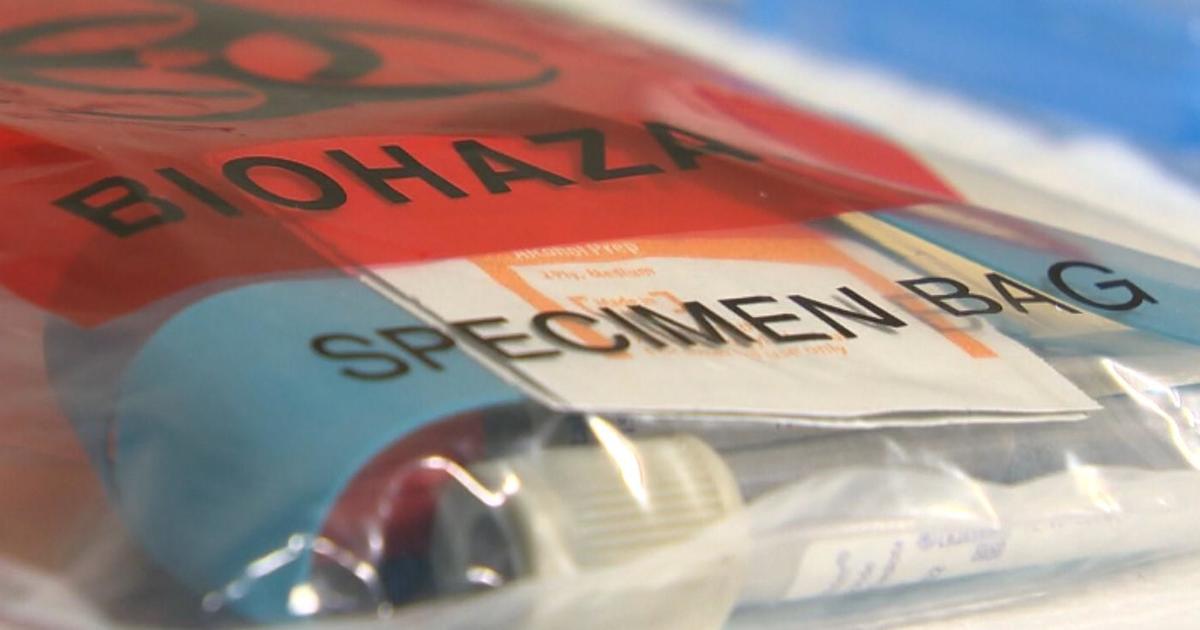Panel: Security Probe Missed Clues In Anthrax Case
HAGERSTOWN, Md. (AP) -- A court-ordered review found Wednesday that security screeners repeatedly failed to recognize signs of mental illness that should have prevented the man blamed for deadly 2001 anthrax attacks from working with the deadly spores at the Army's flagship biodefense laboratory
A panel of experts said Bruce Ivins' long history of psychiatric problems didn't reach the U.S. Army Medical Research Institute of Infectious Diseases because he omitted it on annual, self-disclosure medical forms and because background investigators didn't follow up on the clues he did offer. The panel said his psychiatric history was readily available because he had signed multiple waivers of his medical privacy rights.
The panel's report faults the investigators who screened Ivins for his security clearances and his longtime colleagues at the lab at Fort Detrick in Frederick for failing to report signs of trouble.
"Their complacency was such that in the final months of his career at USAMRIID, many of them observed his deteriorating emotional and physical condition — including a black eye from a fall due to intoxication — but did not report their observations or take other action," the report says.
Laboratory spokeswoman Caree Vander Linden declined to comment on the report, citing medical privacy issues and pending civil lawsuits filed against the Army by anthrax victims or their families.
The FBI has concluded that Ivins, of Frederick, acted alone in preparing and mailing the anthrax spores that killed five people and sickened 17 others in the fall of 2001. He died of an apparently intentional Tylenol overdose in July 2008 after learning that the U.S. Justice Department planned to indict him for the attacks.
Vander Linden said that at the time Ivins was hired in 1980, background checks of laboratory employees were done by the U.S. Office of Personnel Management.
The military has conducted its own background checks of Fort Detrick lab workers since at least 2001. It granted Ivins a security clearance in September 2004, Lt. Col. Alayne P. Conway said. Periodic reinvestigations weren't required until 2009, Conway said.
The Army revoked Ivins' laboratory access to the Ames strain of anthrax used in the attacks in November 2007 after the FBI raided his house. His access to all laboratories was suspended in March 2008 after he failed to immediately report a lab accident.
The report was released at a Washington news conference by a nine-member panel of psychiatrists, a toxicologist and two American Red Cross officials. The findings were first reported Tuesday night by the Los Angeles Times.
The so-called Amerithrax Expert Behavioral Analysis Panel was secretly authorized by the chief judge of the U.S. District Court in Washington in 2009 at the Justice Department's request.
Chief Judge Royce C. Lamberth unsealed the report March 14, according to the panel's chairman, Dr. Gregory Saathoff, a University of Virginia psychiatrist who consulted with the FBI on the anthrax investigation.
Saathoff said the Justice Department obtained a court order after Ivins' death giving the agency access to hundreds of pages of Ivins' sealed medical records dating back to 1978, two years before he was hired at Fort Detrick.
"This request was based on the belief that these records might contain valuable information previously unavailable to investigators that could help investigators better understand Dr. Ivins motivations and behavior," Saathoff said.
The panel released its findings in a 285-page report with Ivins' most sensitive medical information redacted.
The report says Ivins projected a public persona of benign eccentricity, including juggling at children's parties and writing clever poems for departing colleagues. But he revealed a dangerous side to his psychiatrists, including one he saw about a year before he was hired at Fort Detrick, the panel found. Although he provided her name on disclosure forms, background investigators never interviewed her or reviewed her records, the panel found.
Many details of his meetings with the psychiatrists were among the redacted material.
"Dr. Ivins had a significant and lengthy history of psychological disturbance and diagnosable mental illness at the time he began working for USAMRIID in 1980," the report says. Those factors "would have disqualified him from a 'secret'-level security clearance had they been known. Such disqualification would have prevented him from having access to anthrax."
The committee recommended that the military require such waivers for those seeking initial and continuing security clearances. It also recommended that background investigators be trained to recognize and thoroughly investigate red flags for mental health issues.
The FBI said in a statement that the panel's findings and recommendations may be useful in preventing future attacks.
(Copyright 2011 by The Associated Press. All Rights Reserved.)



